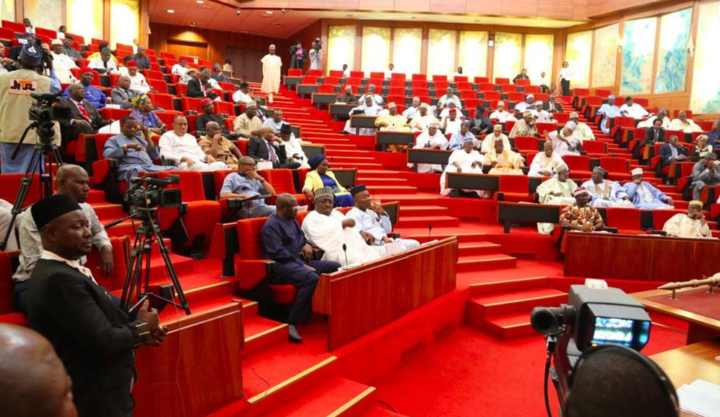The extension of the implementation of the supplementary appropriation bill from December 31, 2023, to March 31, 2024, has received approval from the Senate. This decision was prompted by an amendment presented by the Leader of the Senate, Senator Opeyemi Bamidele, who sought to extend the lifespan of the bill beyond the originally stipulated date.
Senator Bamidele clarified that the 2023 Appropriation Act had initially set the budget duration for 12 months, running from January 1 to December 31, 2023. However, he emphasized that the effective utilization of funds allocated in the 2023 supplementary appropriation bill would be hindered if the capital implementation period is not extended.
During the voting process after the third reading, the President of the Senate, Godswill Akpabio, subjected the bill to a voice vote, and the senators collectively affirmed its approval.

The background to this development involves the approval of the N2.17 trillion supplementary budget by the Federal Executive Council (FEC) in October. This approval was subsequently endorsed by the National Assembly later that same month. Notably, the Minister of Finance, Wale Edun, had earlier hinted at the possibility of the 2023 supplementary budget running concurrently with the 2024 budget.
A detailed breakdown of the 2023 supplementary budget reveals that out of the total N2.17 trillion, N1.01 trillion was allocated to recurrent expenditure, while N1.16 trillion was earmarked for capital expenditure. Among the major capital projects outlined in the budget is the allocation of N300 billion for the rehabilitation of Eko and Third Mainland bridges, coupled with the development, repair, and maintenance of various roads nationwide.
Furthermore, N200 billion has been allocated for the provision of seed, agricultural input, supplies, and agricultural implements, aimed at supporting the expansion of production in the agricultural sector. Additionally, the federal government has set aside N210 billion for wage awards to federal civil servants across the country. Another significant allocation is approximately N5.5 billion designated for the commencement of the student loan program in January.
This extension of the implementation period for the supplementary appropriation bill signifies a proactive step by the Senate to ensure that the allocated funds are effectively utilized for the intended purposes. It reflects a recognition of the need for flexibility in budget timelines to accommodate unforeseen circumstances and to optimize the impact of budgetary allocations on critical sectors of the economy.
As the nation grapples with various economic challenges and strives for recovery, the Senate’s decision underscores the importance of agile fiscal policies that can adapt to evolving circumstances. The approval of the extension aligns with a commitment to fiscal responsibility and prudent financial management, providing government agencies with the necessary time to execute capital projects and fulfill budgetary obligations.
In conclusion, the Senate’s approval of the extension for the implementation of the supplementary appropriation bill reflects a strategic approach to budgetary management. This move ensures that the funds allocated in the supplementary budget for crucial projects and initiatives are utilized effectively, contributing to the overall economic development and recovery of the nation.
Support InfoStride News' Credible Journalism: Only credible journalism can guarantee a fair, accountable and transparent society, including democracy and government. It involves a lot of efforts and money. We need your support. Click here to Donate
